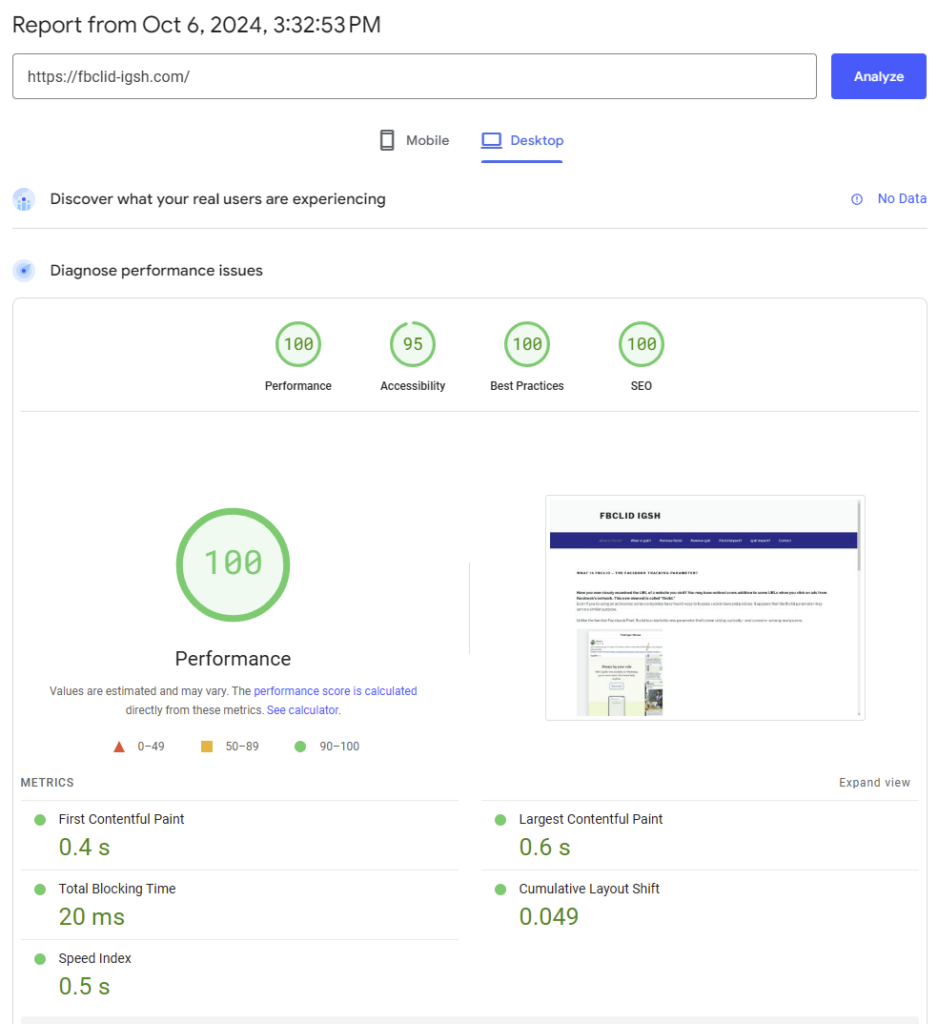Even if you are not an expert in Facebook marketing or advertising, you can identify the presence of something called “fbclid” in the URL of a Facebook post or ad.
If you have an e-commerce site or online store and use Facebook ads to attract new customers, you’ve probably already seen the fbclid parameter in your URL.
Facebook has started adding the fbclid request parameter to almost all external links. A unique string of unknown value that will most likely be used for tracking.
However, there are still several ways to bypass the fbclid parameter and block the information that advertisers receive. Likewise, you may want to know how fbclid parameters affect website sales. Read on to find the answer and some important details about fbclid parameters.
New pixel implementation – parameter fblid
This happened a few days ago and was completely unexpected. “Hello, the link in your Facebook article took you to a 404 page.” I’m just a bit confused and wondering if something went wrong. Videos come out of Facebook fine, thumbnails are correct and everything on the website itself is fine. And what happened?
As soon as you hover over the link, you’ll see that it comes with Facebook-specific parameters. Our study has many shortcomings. There are several articles on this topic in different languages, but none of them are shared on Facebook.
Facebook itself is silent. However, most links originating from Facebook seem to match the fbclid parameters.
Why do they do it? We and others suspect that Facebook has implemented its own system to track browser cookies other than the Facebook Pixel. This may be because these cookies, when served by third-party providers, are increasingly being blocked by ad blockers.
How to overcome fbclid dominance
The first option is to remove the fbclid parameter from the URL and retype it in your browser’s address bar.
You might click a link with the fbclid parameter and forget to right-click the link body without the fbclid.
The most common solution is to install an ad blocker and never see ads again.
How are your website sales and traffic?

Maybe you use Google Analytics to analyze a lot of daily or weekly metrics. Some users have reported that the fblid chain can reduce average session time, reduce pages per session, and increase bounce rates.
But why does this happen?
The website cache component does not cache new URLs, so your web pages may not be optimized. Overall, this will cause your pages to lag and load slower than before.
So if you’re not familiar with the fbclid parameter in your URLs, you might get confused after a while and find the cause elsewhere.
When users visit your website, they expect faster loading, responsiveness and easy navigation. Most people hate scrolling down too much and waiting for some web pages to load for more than 5 seconds.
In fact, some online surveys show that 45% of website visitors expect a website to load within 2 seconds.
Also, if you decide to leave because your page speed is slow, you’ll miss out on opportunities to close deals, run remarketing or retargeting campaigns, and your conversion rate will drop completely.
Fortunately, Facebook gives users the freedom to choose between first-party and third-party cookies. This means that Facebook allows advertisers to use their own cookies and collect sensitive information about their visitors.
As the General Data Protection Regulation comes into effect, this type of choice will give you more control over the data websites collect. Therefore, website owners will be better informed about their data and make better decisions about how it is used.
As you already know, the Facebook Pixel is supported by third-party cookies, but much of the information in these cookies is lost.
The implementation of these new cookies will give advertisers and publishers more control over traffic and the website experience, allowing them to develop better strategies and increase revenue.